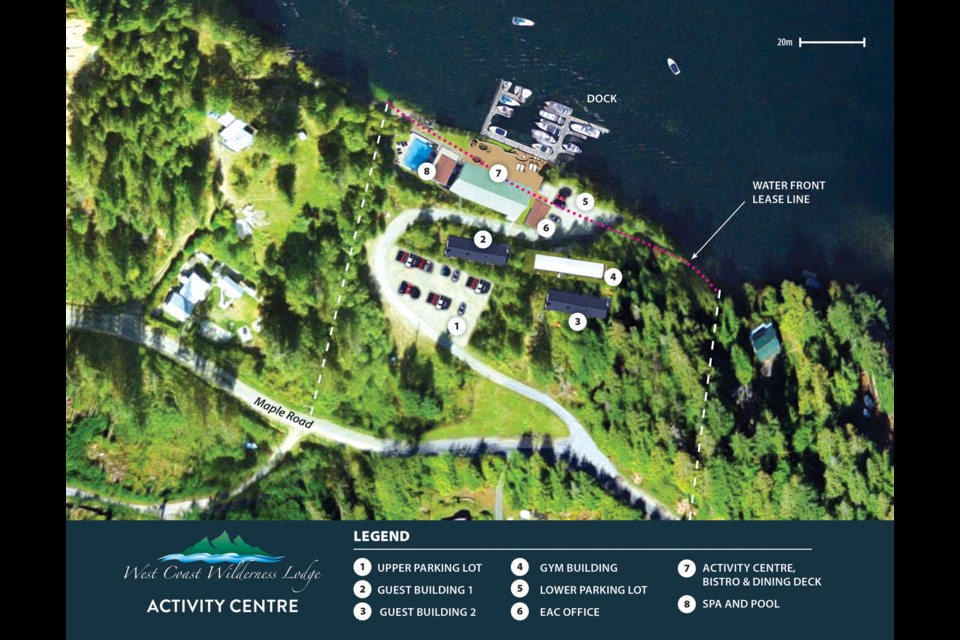For the past 25 years Paul Hansen and his wife, Patti, have been operating the West Coast Wilderness Lodge in Egmont and soon they plan to expand their accommodations ambitions by converting an old salmon processing plant into a year-round resort and spa.
Zoning and official community plan amendments were cleared in 2017, allowing the owners to convert the 8,000-sq.-foot plant, located on the waterfront at 6719 Maple Rd., into a 220-person licensed venue for retreats, weddings and workshops.
All that’s left now are the building permits, with applications submitted this week.
An additional five buildings on the approximately five-acre parcel are also planned, including wheelchair-accessible lodges overlooking Jervis and Sechelt inlets outfitted with full kitchens – a key amenity to draw guests in the off-season when dining options are limited in the tiny community, said Hansen.
Also planned for the property is studio space for yoga and other activities, a gym, bistro, meeting rooms for corporate retreats and a spa.
The 20 rooms could be used by small independent groups and individual visitors. The concept represents an effort to draw more local guests in addition to international tourists who tend to stay at West Coast Wilderness Lodge. “We’re hoping that people will decide to stay longer, especially the domestic market coming out of the city,” he said.
Hansen got a taste of that trend this year with international travel grinding to a halt because of COVID-19.
If permits are approved, construction on the fish plant conversion could start as soon as January with the aim of completing accommodations in time for the 2021 tourist season.
The husband and wife team acquired the vacant fish processing plant, built in the 1980s, for just under $1 million, with help from economic development non-profit Community Futures Sunshine Coast. The total investment is about $3.5 million.
The investment marks the largest syndicated loan Community Futures has ever led locally, according to loans manager and business advisor Mark Yellowley. “We really wanted to support them in continuing to develop and following the trends we see of tourism growing on the Coast and being a significant factor in local economic development,” he told Coast Reporter.
Yellowley said tourism-based businesses have “broken wide open” over the last five years. “At some point the world kind of discovered us as a tourist destination,” he said, adding resorts can drive that growth by creating opportunities for “tourism-related services,” such as eco-tours operators.
The decision to purchase the land and redevelop the plant was Patti Hansen’s idea. “We noticed it sat here for four years, and we needed to grow, and we thought, we should try this,” said Paul Hansen.
The property is down the road from the 25-room West Coast Wilderness Lodge, and the aim is to keep the aesthetic as subdued and unobtrusive. “We don’t want to be ostentatious, a big red thumb,” said Hansen. Green building practices such as use of heat pumps will be applied, and most of the contractors are local, as is architect Scott Keck.
Rather than erase the history of the previously industrial lands, they plan to nod to the past. The Fish Plant is a working title for the bistro, for example.
Currently the property is being used as the Adventure Centre – an extension of the Wilderness Lodge business, with tour packages for nearby attractions such as Princess Louisa Inlet – taking advantage of the fish plant’s deep-water dock. That operation will remain on site and with the addition of a casual waterfront bistro, Hansen hopes “this is going to be a place to come and play.”



